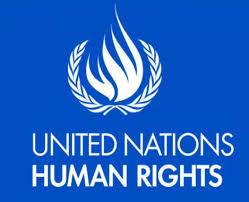Ræða á 70 ára afmæli sáttmála Sameinuðu þjóðanna um ráðstafanir gegn þjóðarmorði
Andrius Krivas, fastafulltrúi Litháen í Genf, flutti í dag ávarp fyrir hönd Norðurlandanna og Eystrasaltsríkjanna (NB8-ríkjanna svonefndu) í sérstakri umræðu um þjóðarmorð í mannréttindaráði Sameinuðu þjóðanna í Genf, en sjötíu ár eru nú liðin síðan sáttmálinn um ráðstafanir gegn og refsingar fyrir þjóðarmorð var gerður. Sáttmálinn var sá fyrsti á sviði mannréttinda sem gerður var á vettvangi Sameinuðu þjóðanna.
Ýmsir virtir sérfræðingar á sviði þjóðaréttar tóku þátt í umræðunni í dag og sem m.a. hafa unnið við dómstóla SÞ um þjóðarmorð í Rúanda og Júgóslavíu. Michelle Bachelet, mannréttindafulltrúi SÞ, og utanríkisráðherra Armeníu, Zohrab Mnatsakanyan, tóku einnig þátt í umræðunni.
39th session of the Human Rights Council
High Level Panel discussion on the 70th Anniversary of the Convention on Prevention of Genocide Nordic-Baltic Statement
13 September 2018
Delivered by Lithuania
Mr. President,
I have the honour to deliver this statement on behalf of the Nordic and Baltic countries; Denmark, Estonia, Finland, Iceland, Latvia, Norway, Sweden and my own country Lithuania.
This year marks the 70th anniversary of the Convention on the Prevention and Punishment of the Crime of Genocide. During these years, much progress has been made in the fight against impunity for the perpetrators of atrocity crimes. Landmark convictions paved the way for the establishment, twenty years ago, of the International Criminal Court.
After the genocide in Rwanda, the international community promised “never again”. Despite this, and a commitment by UN Member States to protect populations, atrocity crimes, continue to be perpetrated. For persecuted persons across the globe, these promises and commitments have failed to translate into action. Impunity is still all too common.
We therefore need, not only more robust accountability mechanisms, but also a focus on prevention. While the primary responsibility lies with States, early responses must be undertaken by all, at local, national and international level. We believe that the Human Rights Council and other Geneva-based human rights mechanisms are particularly well suited to recognise early warning signs of genocide and other mass atrocity crimes. Violations of human rights law and humanitarian law are common risk factors that can lead to the commission of atrocity crimes. These crimes are also a threat to national, regional and international peace, security and stability. We also welcome the Special Rapporteur’s commitment to strengthen the gender perspective in his thematic and country-related work
We would like to thank the UN Special Advisor on the Prevention of Genocide, Adama Dieng, for his tireless work on genocide prevention by putting human rights, the responsibility to protect and prevention of atrocity crimes at the center of his office’s work. The anniversary of the Genocide Convention provides an opportunity to promote its universal ratification. The Nordic and Baltic countries urge all states that are not yet party to the Genocide Convention to ratify or accede to it. We are committed to continue our unwavering support for the Special Advisor and his office’s work. We can all, and must all, do more.
Mr. Adama Dieng, how can we support you in your important work to promote the universal ratification of the Genocide Convention?
I thank you.

